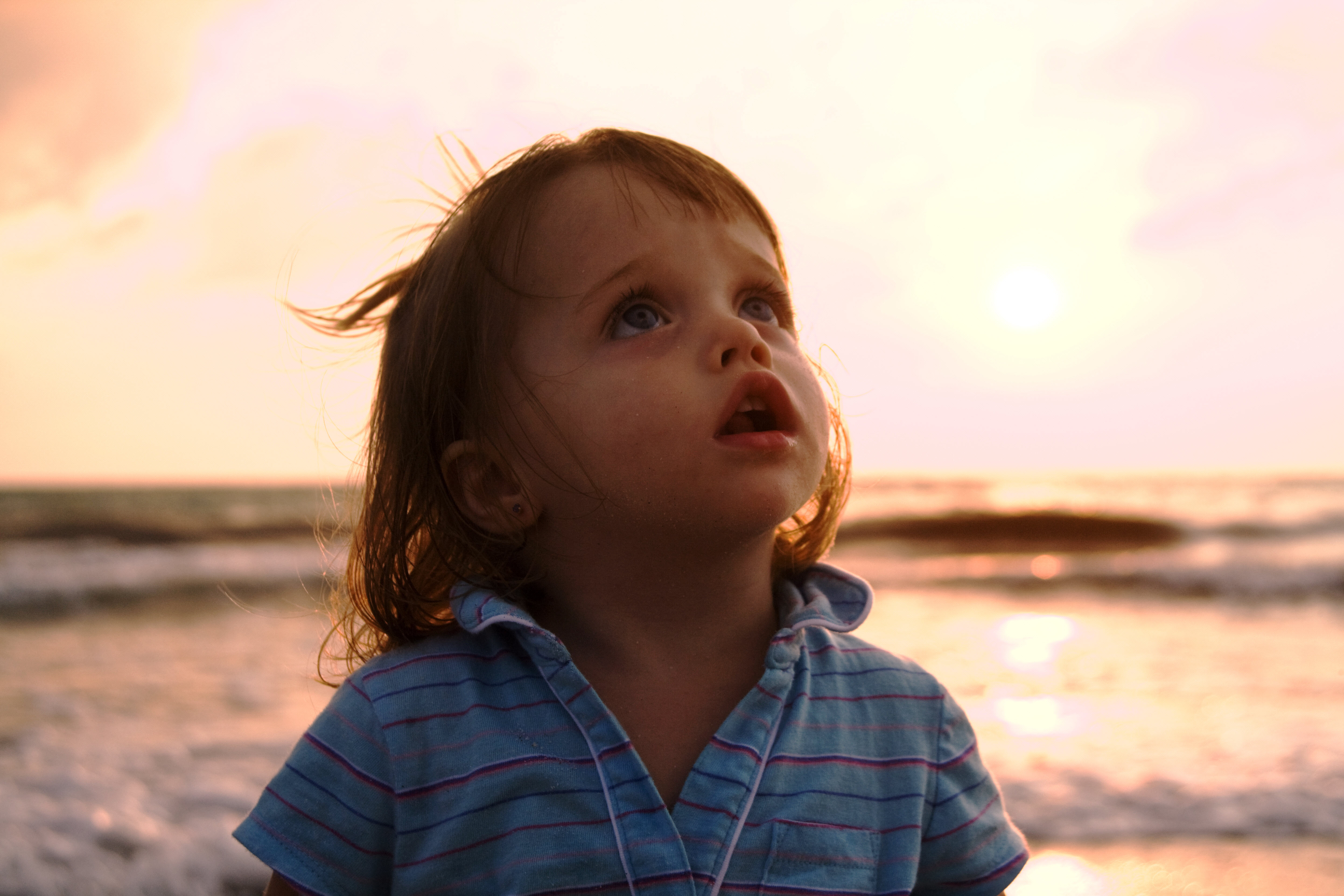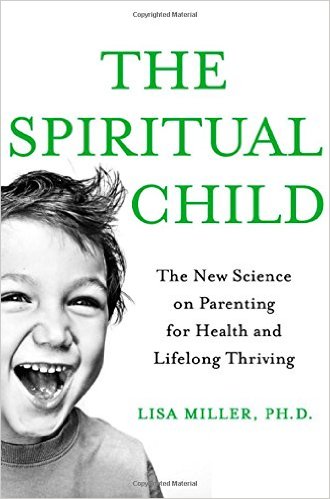 In this conversation with Lisa Miller, clinical psychologist and author of the book The Spiritual Child: The New Science on Parenting for Health and Lifelong Thriving, we explore the science that shows how spirituality helps kids; how spirituality and religion differ, and how parents can raise a spiritual child through day-to-day habits and family values.
In this conversation with Lisa Miller, clinical psychologist and author of the book The Spiritual Child: The New Science on Parenting for Health and Lifelong Thriving, we explore the science that shows how spirituality helps kids; how spirituality and religion differ, and how parents can raise a spiritual child through day-to-day habits and family values.
As a clinical psychologist your research into the spiritual development of children, adolescents and families has generated strong evidence that spirituality is part of our inherent biological nature and is foundational to thriving. Why is this research so groundbreaking and important?
Models of child development have been essentially silent on the matter of spirituality in child and adolescent development, largely due to a lack of scientific research. With a relatively recent wave of rigorous science in top peer review journals, we now have a breakthrough wave of science that shows us: 1) children are born inherently spiritual, 2) this natural spirituality can be supported by parents and caring adults, and 3) if it is supported, it is the greatest source of resilience and thriving known to the medical or social sciences.
Just as the child is born with an innate social sense or cognitive ability, every child is born with a biologically based capacity for natural spirituality. This natural spirituality, if it is supported, is a tremendous resource for health and thriving. The research supports this: Adolescents with a strong personal spirituality are 60 percent less likely to suffer from substance use and abuse and 80 percent less likely to engage in risky and unprotected sex than adolescents who are not spiritually oriented.
How would you define the science of spirituality?
Science is a way of seeing and testing, and an infinite range of topics can be regarded through its lens. We often look at a great force in terms of its impact, indirectly. For example, gravity — we cannot see gravity, instead we look at the expression or effects of gravity on objects or planets. The science of spirituality does the same. The science of spirituality examines the impact of spirituality on human thriving, health and development by measuring the effects of spiritual life on the brain, our bodies, our health and our relationships. The science of spirituality has shown there is a lifelong connection between spirituality and thriving. It has also shown that the essential foundation for spirituality is established in the first two decades of life.
How would you define “natural spirituality” as distinct from “religion”?
Natural spirituality is inborn, foundational to our nature and our birthright. It is in our innate nature to seek and perceive transcendence, a connection to a larger universe. These abilities and drives can work together to develop a two-way relationship with a higher power — God, the creator, the universe, or nature, for example. This relationship is expressed in many different ways in different traditions.
Religion is an embrace of our natural spirituality, as it is shared or transmitted from a specific group of people and carried out in specific traditions. Religion can cultivate our natural spirituality, but so, too, can other institutions and practices — yoga, spending time in nature, and acts of service, for example. A person can be highly spiritual and religious, or highly spiritual without religion. Religion traditionally offers a language and guidance for spiritual growth and development, as well as a sense of community and relationships based upon spiritual values. These are all critical elements of developing a personal spirituality.
In the book you identify specific ways that parents can help develop and support their child’s spirituality. What are some of the key ways in which parents can engage their child’s spiritual connection?
Our parenting culture is very good at mastering new ideas that are based upon science. For instance, take toddlers and the “terrible 2s.” When parents figured out that 2-year-olds must say “no” as a biologically based developmental imperative — in order to become their own personalities — we stopped thinking that 2-year-olds are simply defiant or stubborn, or that we were doing something wrong as parents. Once we understood the developmental process, we learned to honor the little person’s important work of individuation and burgeoning sense of agency.
So, too, with spiritual development. With the right road map to spiritual development, we as parents are far more able to ensure that our children thrive. For example, we can foster spiritual development by sharing our own spiritual experiences, questions and wonderings; by talking with our children about their questions and experiences without judgment; by building a spiritual practice together; by nurturing active relationships with creatures of all kinds and with nature; by sanctifying family as a way of showing that we all are part of something larger; by using spiritual language on a daily basis; and by striving toward a higher bar in our own behavior and ethics.
How do we raise children within our own faith traditions while avoiding any kind of theological competitiveness or belief that one God or creator is better than another?
Understanding the importance of different faith traditions — spiritual multilingualism — is essential to a fully developed spiritual life. In order to recognize the spirituality in all people, children must be comfortable with the idea that others may call the creator by a different name or have a different symbolism or style of worship. Yet what is important is the fact that we are all spiritual beings — however we express it. We know from our research that spiritual multilingualism must start at home or at school by age 6, or a child will start to believe that his own traditions are more real than those of other people. Of course, while encouraging spiritual multilingualism, you can still have your own deeply held faith tradition and religious practice. But children need to know that other people experience spirituality too, even though it may appear and sound different from their own.
In my own home I use the language of natural spirituality and, at times, an expression of spirituality within our family’s own faith tradition. I happen to be Jewish. So, for instance, at Shabbat, I celebrate the sacredness of family, and the presence of spirit in and throughout family, which I call the Field of Love. The Field of Love is made up of our family’s loving relationships and extends to everyone we bring into our circle, from a friend having a sleepover to grandparents visiting for the weekend.
Another way to foster multilingual spirituality is to introduce multiple faith traditions — for example, if you are Christian and your spouse is Jewish, don’t feel as if you have to pick one. Knowing spirituality in more than one language greatly enriches the depth and reach of your child’s spiritual development.
What is important is the fact that we are all spiritual beings — however we express it... While encouraging spiritual multilingualism, you can still have your own deeply held faith tradition and religious practice. But children need to know that other people experience spirituality too, even though it may appear and sound different from their own.
You write compellingly about the process of individuation in adolescents. How does the science of spirituality play out in adolescents?
Adolescents are given a hard time for being “selfish” and “self-centered.” But in truth they are doing crucial developmental work that will allow them to give, flourish, and really contribute to the world. Part of the adolescent journey, a biologically hard-wired part of being a teenager, is to figure out what is “me” and what is “not me.” This is classic adolescent individuation.
In adolescence, there is a biological surge, an unlocking of new abilities: greater meta-cognitive capacity, stronger intellect, sexual drive, more physical power and strength, and also a surge of natural spirituality. The adolescent surge of natural spirituality presents as a hunger, an intellectual quest, and a desire to connect with transcendence. And this surge promotes adolescent spiritual individuation. The outcome of spiritual individuation is to connect the essential teenage questions of the head, (“What is my purpose in life?”) with the direct transcendent perception of the heart (“I want my life to really matter”) and to form a living transcendent relationship with a higher power — a relationship that ultimately translates into a meaningful sense of self in the world.
Our research shows that in adolescence, spiritual individuation is central and, in fact, essential to the broader process of adolescent individuation. The sense of “who am I?” cannot be answered by being a math whiz or hockey star; math and hockey are talents or skills. The questions that occupy teenagers go deeper, and kids know it: What is the meaning or purpose of my being alive? What is my contribution or calling? These are spiritual questions.
Spiritual individuation is epic work that sets up the adolescent for adult life, the foundation on which our lives as adults are built. So supporting an adolescent during this process is essentially the most important thing we can do as parents, youth groups, and schools. The research supports this: adolescents with a strong personal spirituality are 60% less likely to be severely depressed as teenagers.
You have said spirituality and depression are two sides of one coin, that depression in some form is part of the developmental process. How does having a spiritual life protect children and adolescents from depression?
As we’ve said earlier, teenage individuation sets in motion the formation of adult identity. This process includes asking questions of deep human significance such as: "Why do I exist? What is the meaning of my life and, ultimately, the meaning of all life?" These questions are not easy, if we really take them seriously. To existentially fear that we do not matter is really terrifying.
If we leave these questions of ultimate meaning and purpose unexamined and unanswered, the teen can devolve into a deeper depression. This is one pathway to depression, which is the most prevalent form of suffering for teenagers: sixty to seventy percent of teens, experience a substantial depression sometime in adolescence. This is so common that in many cases (though not all) it is better understood not necessarily as an illness, but an essential process in late adolescent development: developmental depression. If teens have an active and supported spiritual life in which they have practice asking and living through these hard questions, they are more prepared to face them. Studies show that teens whose spirituality is supported by parents are 80 percent less likely to become depressed even if they have a genetic predisposition toward depression.

You describe the “pilgrimage of spiritual parenthood.” What do you mean by this? Is it a universal experience of parenthood?
Almost every parent is stunned by the unflappable love of young children. You can trip, fall and drop a child on the playground, and when the crying stops, the child loves you just the same, bright eyes, open and full of joy. The child loves us unconditionally — when we are angry or unhappy. Early school-aged children have the presence, perceptiveness and an imagination that shows us the possibility of life. The struggle of the adolescent, the hard grappling and strong hunger to know, breaks us from complacency, and makes us want to go deeper, feel more strongly and love more fully. At all of these phases, the child is the source of spiritual awakening. As parents we act as a guide or ambassador, trying to translate the daily challenges into opportunities. Unconditional love, the joyous possibility of the universe, struggling with big and moral questions — these are all spiritual experiences, and parenting a child wakes us up to them.
As the mother of three children, how would you describe your own process of spiritual parenting?
Essentially spiritual parenting calls for inner life, conducted out loud. What does “out loud” sound like in my home? “Thank you for the sunshine, thank you for the children!” “Look at the little bird, ‘what say you, bird?’” These sacred moments get highlighted and shared, constantly. Sometimes we put an end to a silly fight with “thank you God for each child in our family, for precious Leah, beloved Lila and kind Isaiah.” Giving thanks out loud shifts the moment and make a point about who we are, and what we are here to do.
My greatest wish for my children is a stance on living that can guide them for all of their lives: a deep inner compass, and the sense that life is foundationally guiding and full of surprises, to buoy them up. Every child has his or her own calling, purpose, and path; my job as a parent is not to find those for my child, but to equip each of them to find them at each turn in life.











